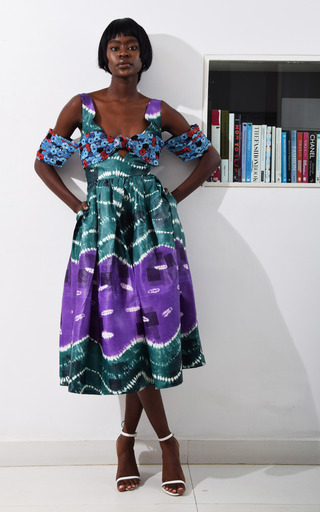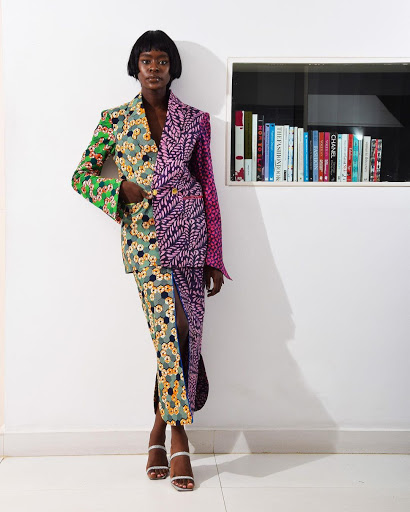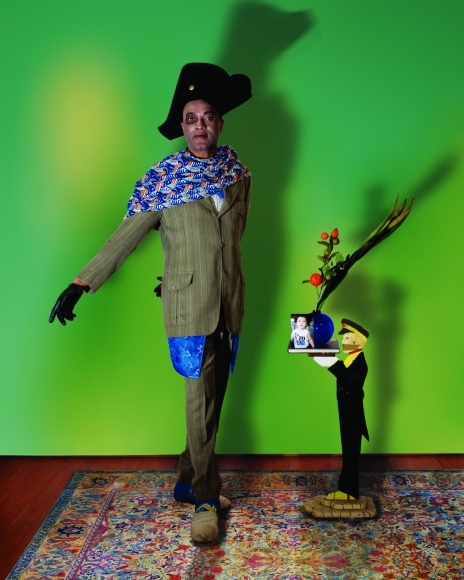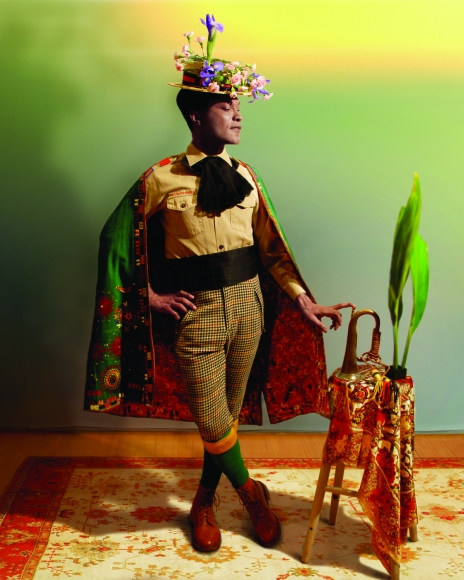MEGALOPOLIS - A NEW GENERATION OF CREATIVES IN LAGOS
- Riccardo Aimerito
- Feb 18, 2021
- 6 min read
In the 1990s, Lagos was the perfect example of a dysfunctional city, left to its own devices and apparently in decline. Today, Lagos is an attraction in itself. A metropolitan island that’s home to an interesting mix of people, cultures and is fast becoming a melting pot of creative talents and businesses in Africa. In addition, Lagos has become one of the new fashion capitals. But this boom isn’t just limited to fashion. The Nollywood film industry has long been in the shadow of the more famous Bollywood and Hollywood, and now attracts global investment from companies such as Netflix. The Art X Lagos fair is in its fifth year, attracting 40,000 visitors from all over the world. Musically, the Afrobeats scene has exploded globally.

Lagos Fashion Week (also known as LagosFW) is a #fashion platform that drives the Nigerian and ultimately #African fashion industry. It brings together buyers, consumers and the media to view current designer collections in a four-day event in the fashion capital of #Lagos, Nigeria. It’s the first major fashion week that shapes and concretizes the future of African fashion, supporting emerging and innovative designers. But that is not all. In fact, the event also aims to be a vehicle to create new jobs and access the opportunities that the world market offers - Fashion Focus Africa, Fashion Focus Fund, Fashion Business Series and Green Access are just some of the aforementioned initiatives promoted by #LagosFW.

Lagos Fashion Week, held every fall, was launched in 2011 by Omoyemi Akerele. She conceived the biennial Lagos Fashion Week with the intention of not only increasing exposure for local designers, but also of providing them with a long-term framework for building thriving businesses. “There was a group of like-minded, passionate individuals here, members of a fashion scene where the only passport to entry is passion,” says Akerele. “But it’s more than just dreaming of a fashion utopia - it’s about bringing fashion to our people to develop our economy.”.
It’s been 10 years since the first Lagos Fashion Week and not only has the fashion show proved to be a stepping stone for some of the biggest names in African fashion, from Kenneth Ize to Orange Culture, but Akerele’s efforts to bring the Nigerian textile industry back to its previous glories (until the 1980s, it was the largest in Africa) led the industry to achieve unprecedented growth for the first time in decades.

But who are the fashion designers who have truly left their mark over the years during LagosFW?
Lisa Folawiyo, one of the most established designers on the Lagos Fashion Week program, has built her reputation on her innovative mix of traditional #Ankara fabrics (the famous wax-resistant dyed fabrics of West Africa) with contemporary tailoring skills and feminine silhouettes. This last season, she showed us playfully mismatched prints and a palette of bright colors on cropped tops and midi skirts, along with tailored trouser suits.
Adebayo Oke-Lawal created his contemporary menswear brand Orange Culture in 2011 and has since become one of the foremost promoters of an androgynous approach to dressing. The label is more than a clothing line, Adebayo insists. It is a “movement” that covers universal silhouettes with an African touch. Prints, patterns and bold colors are the drivers of his S/S 21 collection, which mixes #street references with his both masculine and feminine youthful silhouettes.



African art and culture are deeply intertwined in Aisha Obuobi’s Christie Brown label. Created in 2008, Christie Brown is an ambitious brand, which combines #tailored suits with decorative fabrics and traditional wax-resistant fabrics, offering a stylish taste of true neo-African culture. For S/S 21, Obuobi combines a rich color palette with lace and brocade to obtain feminine silhouettes with fitted shapes enhanced by bustiers, ruffles and many details.
Founded in 2007, Papa Oyeyemi’s Maxivive brand quickly gained a reputation as an alternative menswear brand. Seven years later, the designer added womenswear and a luxury sports diffusion line, MXVV, to his creative output. His brands are changing the narrative of Africa on the global stage of fashion design. Excluding traditional seasonal collections in favor of two collections driven by Africa’s dry and wet seasons, 2021’s Harmattan (dry) collection offers a fiery palette of hot pink and cool indigo blue, worked into relaxed, layered silhouettes with an oriental appeal.



Lagos has become a major fashion hub in no time, catching up with the main fashion capitals like #London & #Paris, thanks to its designers who are breaking new ground and gaining worldwide attention with dazzling colorful creations and spectacular fashion shows, such as Arise Fashion Week.
Arise Fashion Week, conceived and founded in 2009 by Nduka Obaigbena, promotes and celebrates young and established designers from Africa, the diaspora and the world in general. Since it first edition, it has featured over 500 noted designers and hosted icons like Naomi Campbell, Grace Jones, and Imaan Hamamm. Each edition of Arise Fashion Week is a unique mix os styles and colors, promoting the rich diversity of cultures of the African people and proposing itself as an intellectual festival of fashion, culture and creative arts.

Arise Fashion Week 2020’s 30 Under 30 Contest, titled “The New Stars”, revealed a number of young talents looking to make their mark. The legendary Naomi Campbell, official ambassador of the event, managed to open and close the main fashion shows as she strongly wanted to show support and trust towards this emerging market.
Let’s find out together who are the fashion designers who have distinguished themselves and have been acclaimed by critics.
Born in Vienna and currently based in Lagos, Nigerian Austrian designer Kenneth Ize launched his eponymous brand in 2013 and has never looked back since. After winning the enviable LVMH Prize and enlisting the likes of Naomi Campbell and Iman to his circle, Kenneth Ize has taken the fashion world by storm. At Arise, Ize presented a collection that showcased colorful native Yoruba fabrics, popularly known as Aso Oke, in different styles for both genders. With a strong focus on heritage, the brand supports a small community of Nigeria-based weavers, working together directly with a variety of artisan and design groups across the country. The collection earned him the first prize.

Ré Lagos showcased a mix of eclectic prints and vibrant nature-inspired outfits. Orire Omatsola, who runs Ré Lagos, said she always knew she wanted to become a designer. At 17, she enrolled in Milan’s NABA School of Design and designed a collection that shortly after launched her into the upper echelons of the industry. Her veritable representation of African artisanal craftsmanship won the hearts of the judges, and the beauty and eccentricity of her collections caught the viewer’s attention.
Graduated in microbiology from the University of Lagos, artist Ian Audifferen creatively directs the Tzar Studios brand, which was founded in 2013. Born in the suburbs of Lagos, the brand has also gained importance thanks to its exciting line of men’s shirts. Tzar challenges the conventional approach to menswear by creating unique items that embody the purpose of form and function. In this edition of Arise FW, Tzar reached its peak thanks to Naomi Cambell who closed the show wearing a wide kaftan from the brand’s S/S set. “The queen @naomi in my outfit is a joy for all seasons,” wrote Audifferen on her Instagram.

Recently Lagos has also become a symbol of a new "dandyism". A dandy, historically, is a man who attaches a particular importance to physical appearance, refined language and pleasant hobbies, pursued with the appearance of nonchalance in a cult of self.
Lagos, thanks to Iké Udé, has revolutionized this concept. In his Sartorial Anarchy self-portraits, Nigerian-born artist Iké Udé creates composite images of the dandy through geography and chronology. Udé photographs himself in disparate ensembles, pairing, for example, a copy of an 18th-century Macaroni wig with other carefully selected vintage garments and reproductions. “The incongruous pairing of the familiar... with relatively unfamiliar objects”, he observes, “is the place where dandyism can be stoked, problematized, renewed and appreciated as a protean plastic art”. Udé fabricates a particularly exaggerated vision of the dandy, addressing and questioning the abuses of the past while celebrating the present. In addition to his artistic practice, Udé is also a consummate dandy and appeared on Vanity Fair’s 2012 best dressed list.
Meet also a new generation of emerging Lagos artists from the Skate Crew taking off in the African megacity. Skaters, BMXers, rollerbladers, graffiti artists, photographers, musicians, graphic designers find a home in Lagos, where Jomi Marcus-Bello founded Wafflesncream, the Nigerian skate company and clothing brand.


Wafflesncream with its 2020 capsule collection, African Love, is at the forefront of the flourishing West African street-skate fashion scene. It represents a tribute to the Nigerian people, whose love doesn’t often get mainstream celebration. Marcus-Bello and his friend Fadekemi Ogunsanya, a young artist and architecture student in London, have designed this innovative collection which is both an expression of individuality and a demonstration of solidarity as an act of love. This is why Marcus-Bello and Ogunsanya designed, conceived and sewed the clothes in pairs, as a couple - each dress has its half.

Marcus-Bello and Ogunsanya asked Logo Oluwamuyiwa, a Nigerian photographer, to shoot the capsule items in monochrome black and white images in order to make them timeless: in this way it cannot be possible to pin the collection to a specific time and a specific trend.
Article by
Morgana Simonazzi & Federica Moschitta

















Comments